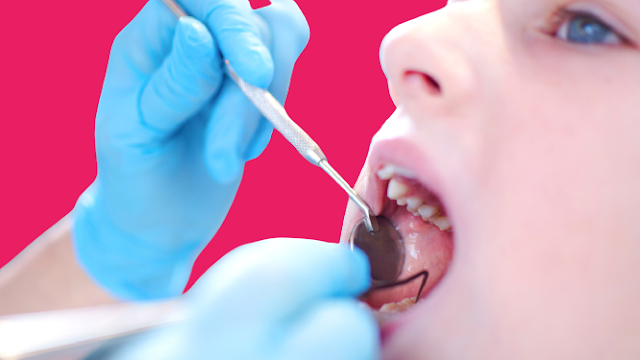Why Does Tooth Decay Occur?
Why Does Tooth Decay Occur? Factors Causing Tooth Decay
Tooth decay is one of the most important problems that disturb people, especially due to the proliferation of solid materials and the widespread use of sweet foods such as sugar. Causes Tooth Decay? What Are The Factors Causing Tooth Decay? Tooth decay is affected by the inborn genetic characteristics of the person and environmental factors such as eating habits. Tooth decayis defined as dental damage and loss that will occur as a result of an irreversible change in the chemical structure of the tooth with a series of events in the oral cavity. It is reported that tooth decay, which can be defined as an infectious disease, is determined by environmental and genetic factors such as flora, eating habits, oral hygiene, saliva structure. In studies conducted to date, it has been reported that genetic characteristics affect the formation of tooth decay by 40-60%.
Causes Tooth Decay?
Factors affecting tooth decay are divided into two as Genetic Factors and Environmental Factors.What Are The Environmental Factors Causing Tooth Decay?
Diseases, dietary habits, physical factors, some drug use, harmful substance use, and age constitute environmental factors.1. The Effects of Diseases, Drug Use and Smoking on Tooth DecaySome diseases such as Diabetes Mellitus and Sjögren Syndrome cause tooth decayand tooth loss. In addition, long-term drug use such as antihistamines and antidepressants has been reported to cause toothdecay by reducing saliva fluidity . Smokingcauses both the damage to the tooth enamel and the sugar contained in some cigarette derivatives to tooth decay2. The Effect of Nutrition Habits on Tooth DecayIt has been reported that the amount of carbohydrate that the individual takes daily affects the possible occurrence of tooth decay. Studies have emphasized the importance of eating habits and chemically determined taste sensitivity (Wendell et al 2010). Another factor that affects is mineral deficiency. Tooth decay occurs as a result of the breakdown of hydroxylapatite mineral, which is the main substance of tooth enamel, with food.3. Physical Factors Causing Tooth DecayFluoride in toothpastes is an important chemical substance in dental health.Fluoride is as important for health as tooth brushing. Mineralloss and tooth decay on tooth enamel have been reported to be treated with fluoride.4. Age FactorIn studies conducted to date, it has been reported that 90% of individuals, mostly children, have tooth decay.What Are The Genetic Factors Causing Tooth Decay?It is known that genetic characteristics are effective in the formation of dental caries.It is important to identify alleles that predispose to caries formation and tolimit environmental factors affecting caries in individuals with these alleles . In addition, the genes that have an effect on taste perception also affect food preferences and tooth decay in people with single nucleotide polymorphisms of these genes.An increase in the number has been reported. It has been stated that the genetic structure affects the anatomical structure, and the information from the parents causes dental caries in the genes that cause narrow jaw and large teeth genes and disorders in the tooth alignment in the individual. In the 'tooth decay and genetics' studies conducted to date, it has been reported that the T allele of the Tuftelin (TUF1) gene and the C allele of the Ameloblastin (AMELX) gene cause tooth decay. It has been stated that there is a correlation between immune system problems and dental caries. The gene of human leukocyte antigens (HLA) was compared in individuals with and without caries formation and a significant relationship was found with the HLA-DR4 allele. The same association was not found with HLA-DR1,2,3 alleles. In the caries correlation studies with saliva components, the MUC7 gene, which encodes the MUC7 protein, whose task is to clear the oral region from bacteria, was examined and no relationship was found. Suzuki et al. (1988) suggested that MHC (Major Histocompatibilty Complex) haplotine may be associated with caries in their study. They reported that caries development was observed in some strains, and resistance developed in some strains. In the light of these data, they stated that the caries resistant strains were H-2. They reported that MHC controls tooth decay as well as controlling many infectious diseases. They reported that caries development was observed in some strains, and resistance developed in some strains. In the light of these data, they stated that the caries resistant strains were H-2. They reported that MHC controls tooth decay as well as controlling many infectious diseases. They reported that caries development was observed in some strains, and resistance developed in some strains. In the light of these data, they stated that the caries resistant strains were H-2. They reported that MHC controls tooth decay as well as controlling many infectious diseases









No comments